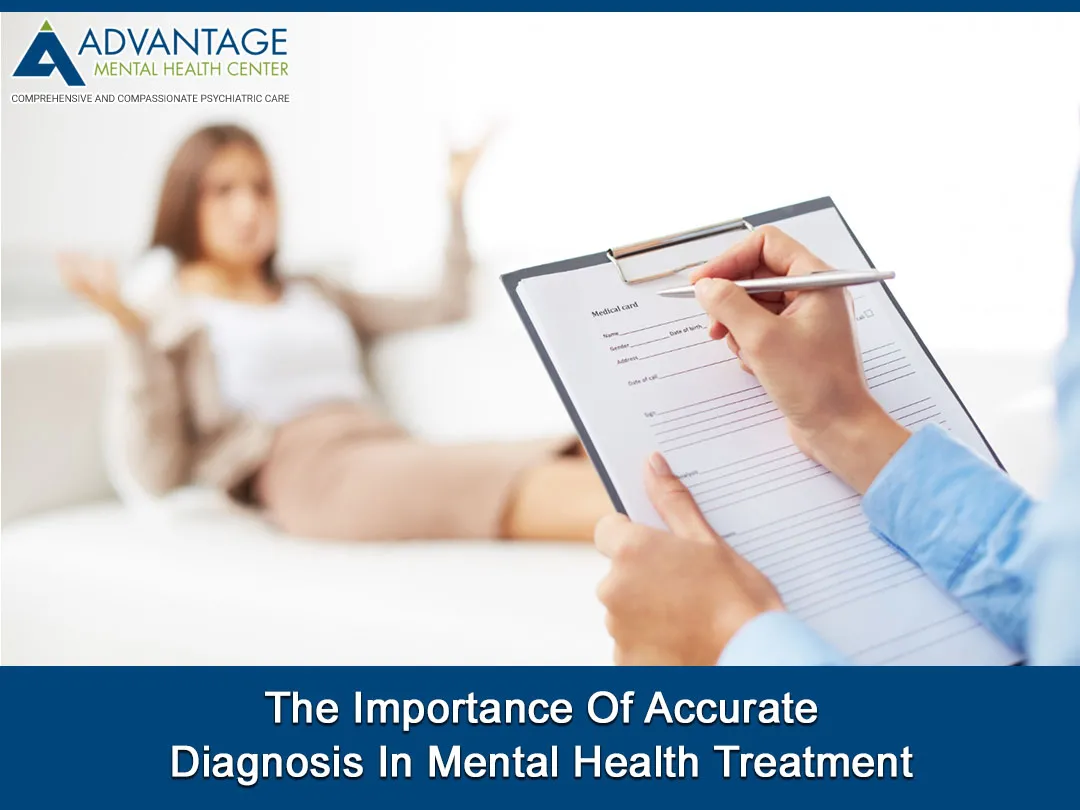In the complex world of mental health, the journey toward healing and well-being often begins with a single, crucial step: obtaining an accurate diagnosis. The role of a psychiatrist and psychiatric nurse practitioners, along with other mental health professionals, is paramount in this initial phase. Their expertise not only lies in treating the symptoms but also in unraveling the intricate web of cognitive, emotional, and behavioral patterns that contribute to a patient’s condition. This blog delves into the significance of accurate diagnosis in mental health treatment, the challenges that may arise, and how it fundamentally shapes the course of recovery. For those in the Clearwater, FL area and beyond, understanding the importance of this step can make a profound difference in the path to mental wellness.
Why Accuracy in Diagnosis Matters
An accurate diagnosis is the cornerstone of effective mental health treatment. It provides a clear understanding of a patient’s condition, enabling psychiatrists and psychiatric nurse practitioners to formulate a tailored treatment plan that addresses the specific needs and challenges of the individual. Without an accurate diagnosis, treatment can be like navigating through a dense fog—uncertain and potentially ineffective, if not harmful.
For patients, receiving an accurate diagnosis can be a profound moment of clarity and validation. It often brings a sense of relief and understanding, providing a name and context to experiences that may have been confusing, frightening, or isolating. This pivotal step can empower patients, fostering hope and motivation for the journey ahead.
Challenges in Achieving an Accurate Diagnosis
Despite its critical importance, arriving at an accurate diagnosis is not always straightforward. Mental health conditions frequently present with overlapping symptoms, making it challenging to distinguish between disorders. For instance, anxiety and depression share common features, such as difficulty concentrating and sleep disturbances, yet require distinct treatment approaches.
Moreover, individual variations in symptom expression and the influence of cultural, social, and personal factors further complicate the diagnostic process. A psychiatrist and psychiatric nurse practitioner must navigate these complexities with sensitivity and expertise, often relying on clinical interviews, psychological assessments, and sometimes, collaboration with other healthcare professionals.
Stigma and misunderstanding surrounding mental health can also pose significant barriers. Patients may hesitate to seek help or fully disclose their symptoms due to fear of judgment or misconceptions about mental illness. Consequently, a psychiatrist and psychiatric nurse practitioner must create a supportive, non-judgmental environment to encourage open communication and trust.
The Impact of an Accurate Diagnosis on Treatment Plans
An accurate diagnosis informs the creation of a comprehensive treatment plan, which may include medication, therapy, lifestyle changes, and support strategies. For example, a diagnosis of bipolar disorder would lead to a different treatment strategy than major depressive disorder despite the presence of depressive symptoms in both conditions.
Furthermore, an accurate diagnosis allows for monitoring and adjusting treatment as needed. Mental health is dynamic; symptoms can change over time, and what works initially may need refinement. Regular reevaluation ensures the treatment aligns with the patient’s evolving needs.
Moving Forward
The journey to obtaining an accurate diagnosis can be challenging, requiring patience, persistence, and a collaborative relationship between the patient and their psychiatrist and psychiatric nurse practitioner. It’s a critical step that lays the foundation for effective treatment, recovery, and improved quality of life.
For those navigating mental health challenges, remember the importance of seeking help from qualified professionals who can guide you through this process. For a psychiatrists and psychiatric nurse practitioners, the commitment to accurate diagnosis reflects the broader commitment to compassionate, patient-centered care.
In conclusion, an accurate diagnosis is not just a label but a map guiding the treatment journey. It’s a tool that empowers both psychiatrists and psychiatric nurse practitioners and their patients, leading to more targeted and effective interventions. As we continue to advance our understanding and treatment of mental health conditions, the pursuit of accuracy in diagnosis remains a critical endeavor, one that holds the key to unlocking a path to healing and well-being. For residents in Clearwater and those seeking compassionate, expert care, Advantage Mental Health Center stands as a beacon of hope, providing the support and guidance needed to navigate this complex journey.
Picture Credit: Freepik


